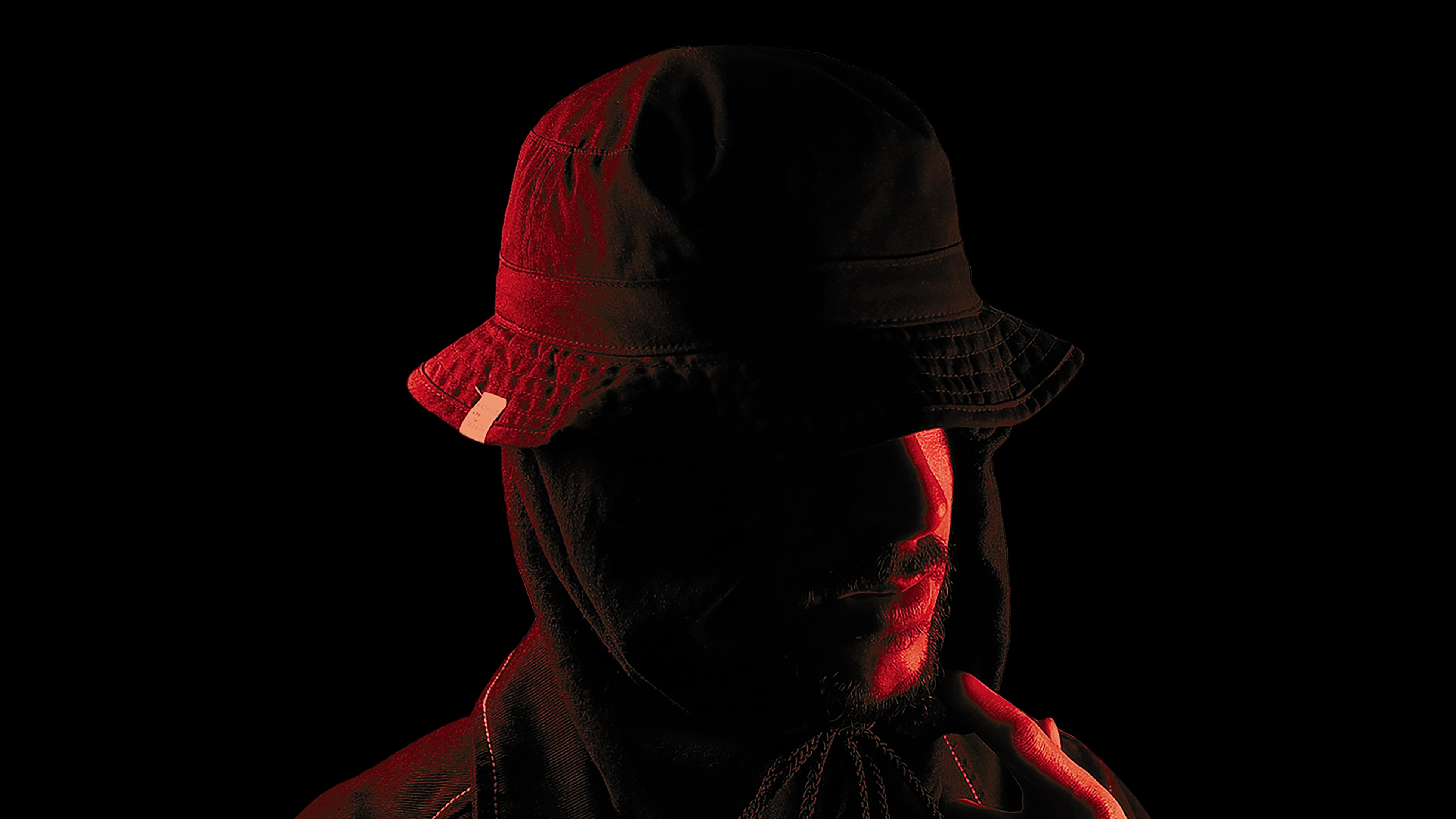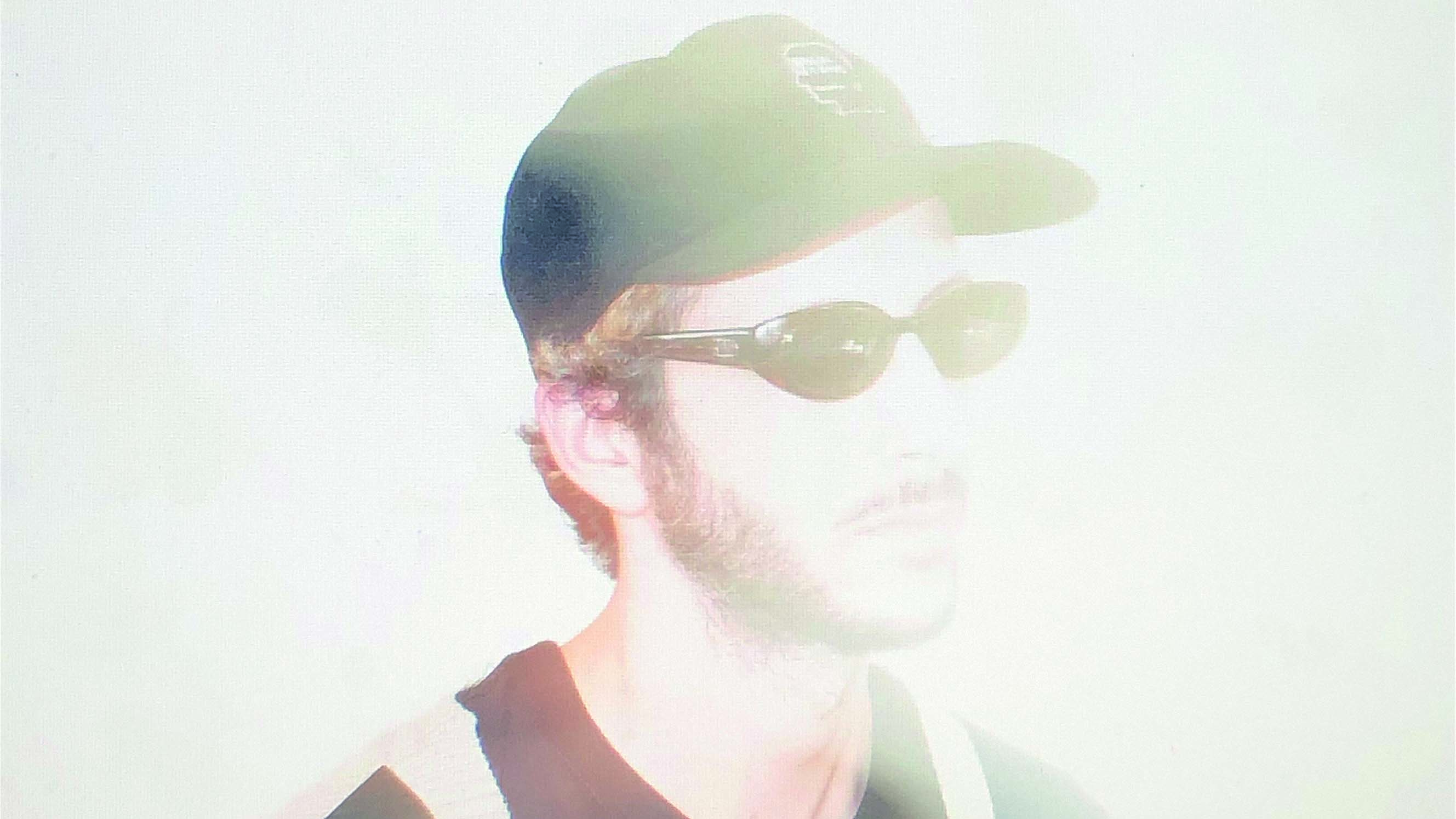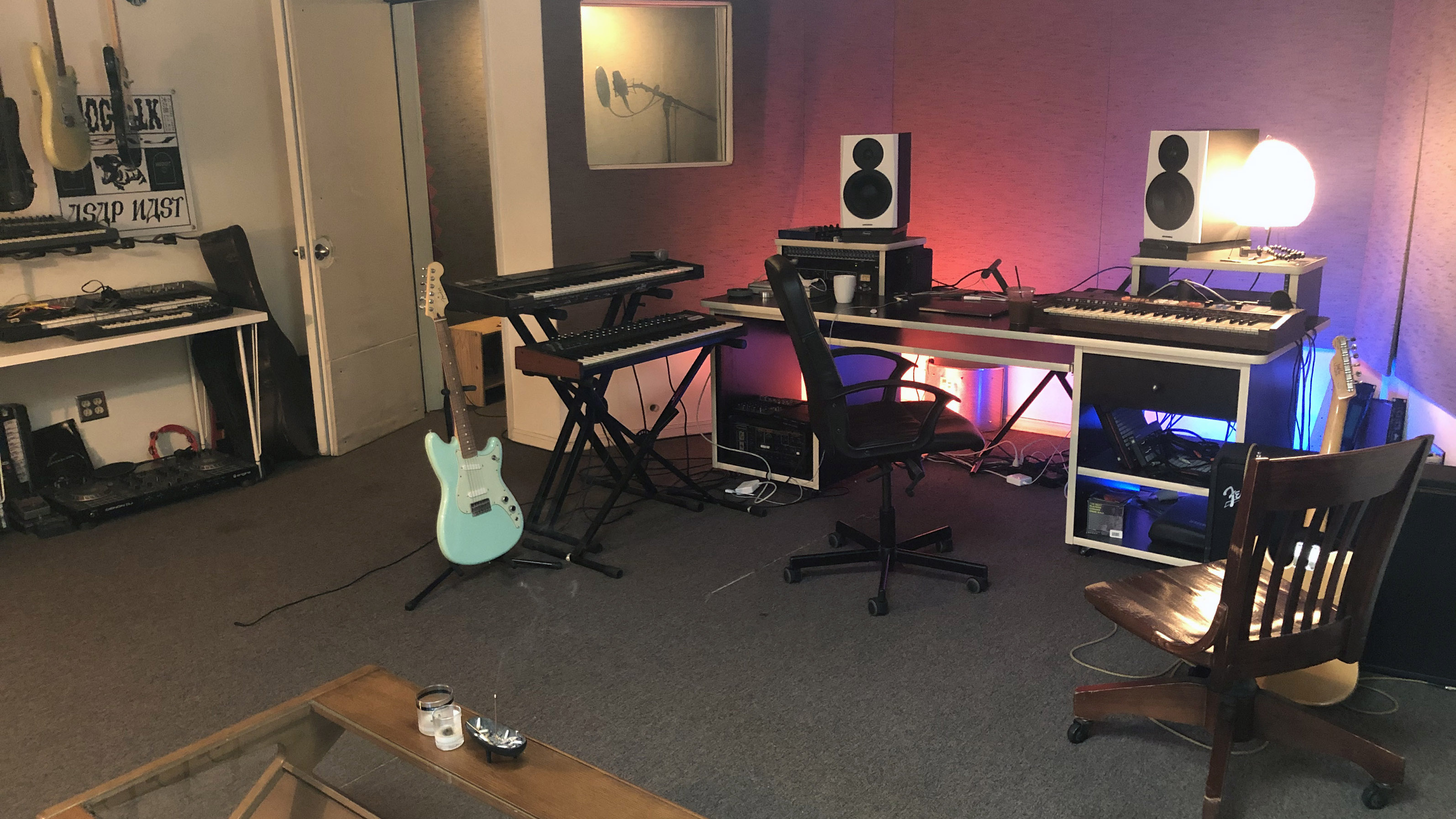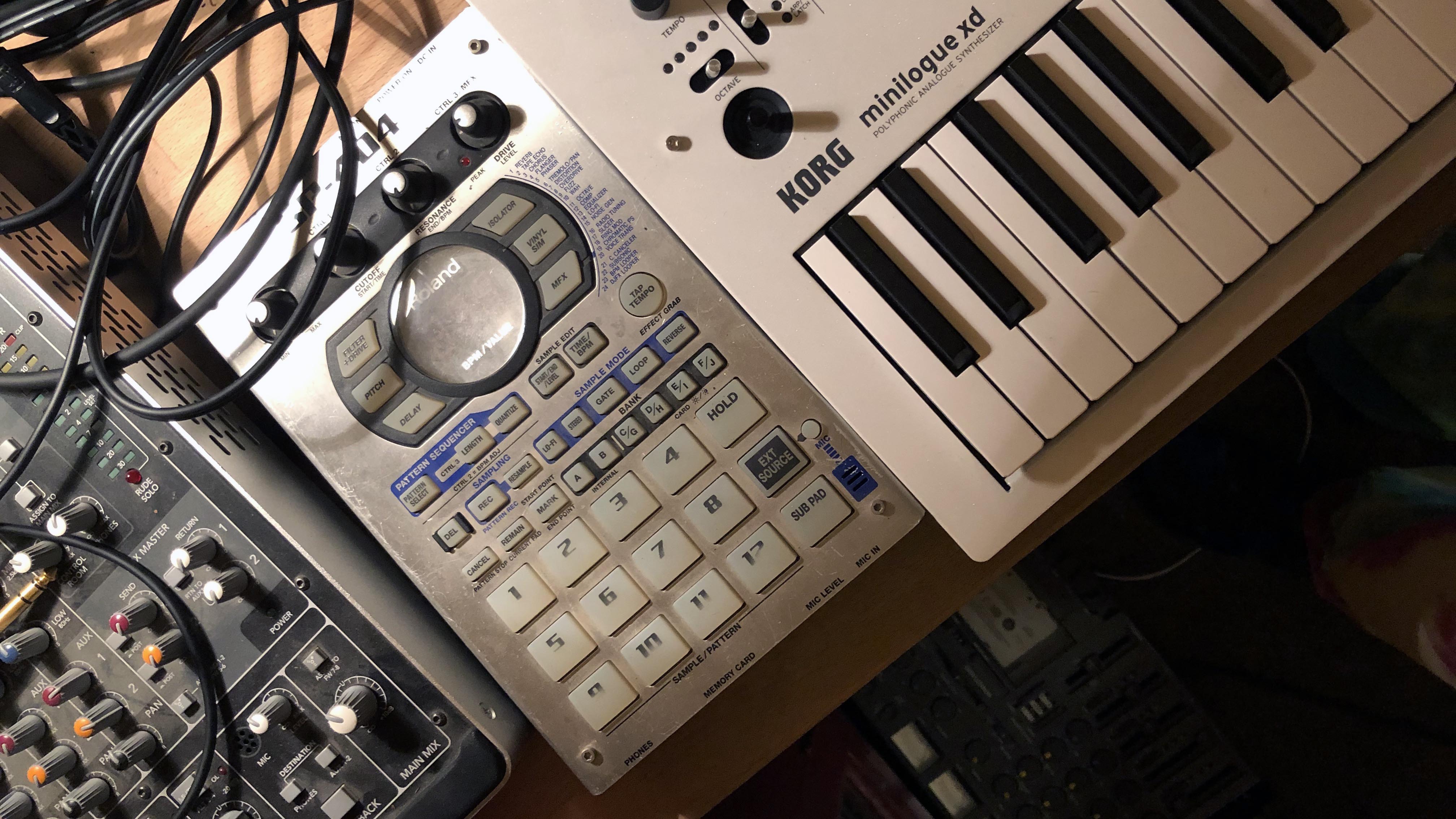Shlohmo: "I kind of see myself as a graphic designer who uses Ableton"
Shlohmo’s lo-fi approach lays the foundation for his unique brand of apocalyptic hip-hop...

LA-based Henry Laufer began making homemade remixes in the late 2000s, his production career igniting when Abel Tesfaye requested his remix of Drake & The Weeknd’s Crew Love become an official release.
Sourcing influences from ’90s trip hop, shoegaze and skateboarding culture, Laufer’s debut Shlohmo album Bad Vibes (2011) attracted further acclaim for its groggy, lo-fi sound.
Further albums, Dark Red and The End, upped the intensity of Laufer’s distortion-driven style, the former scoring Top 10 success on Billboard’s dance/electronic chart. Later, Laufer co-founded the visual arts collective/label WEDIDIT and has increasingly moved into vocal production work, including the Banks single Brain.
Shlohmo’s latest EP, Heaven Inc., takes a more melodic approach, although still defined by Laufer’s angst-driven dystopian vision.

We read that you often use your dad’s Roland Jupiter-6. Is he responsible for your interest in music technology?
“My dad is a professional singer/songwriter and multi-instrumentalist, so he always had stuff lying around. The Jupiter-6 was one of his last ’80s synth investments and he passed that down to me when I was about 21.
"Before that I’d started learning how to DJ and scratch when I was 14 or 15 - that’s how I got interested in production. At first I was just making mediocre beats and learning how to sample, but when GarageBand came out I started bringing in samples and chopping stuff up that I’d made as a kid. By the time I got the Jupiter I was definitely well into production.”
Want all the hottest music and gear news, reviews, deals, features and more, direct to your inbox? Sign up here.
Abel Tesfaye (aka The Weeknd) requested your remix of Crew Love be made official. Was the objective of remixing to get spotted?
“No, it was just a hobby, but it’s funny how the context has changed in the last decade. Things that are widely heard and accepted now were not really the case eight years ago when this remix came out.
"For example, the idea that pop vocals could have a darker, more removed feel hadn’t really been worked through yet. For me, it was just fun to explore a territory that hadn’t been explored, which garnered the attention of Abel and my Jeremih remix which ended up becoming our No More EP.”
You wouldn’t recommend bedroom producers remix other artists’ material to get noticed?
“It depends. Doing stuff to get noticed isn’t necessarily the best way to go about things in general; it’s better when attention comes from something actually being good.
"Having said that, I went to college for a couple of years when I thought I wanted to be a visual artist and they had me try to copy my favourite paintings - not to display or sell, but to practise and figure out technique. You can learn a lot by remixing a piece of music and figuring out song structure, melodic structure and learning different ways of looking at music.”
Doing stuff to get noticed isn’t necessarily the best way to go about things in general.
It must be insightful to have access to stems from original recordings?
“Sometimes I’m so inspired by the track in general that I can take the two-track, EQ out certain parts and make a completely new instrumental. My fake acapella version might have some artefacts from the original, but I’ll try to find something that complements it.
"When I remix a song and have access to stems, sometimes the most sparse, lonely stem can be the most inspiring element because it has this ghostly, ethereal quality that lines up with where I want to take the song.”
Your recent album The End was labelled apocalyptic. That was prior to the pandemic, so what’s your mindset now?
“I’ve lived with one foot in the house my whole life, so things are not too different now other than the added anxiety. My nature is to second-guess existence and what we’re all doing here. I wasn’t necessarily prepared for the pandemic, it was more like, duh, yeah, it was to be expected at some point.
"The only problem I’m finding is lack of inspiration. I used to get a lot of that from travelling - not even outside of LA, but because everything is at a standstill I have to figure out what the fuck to look at these days.”
In what way would walking around LA feed into your creative process?
“I get really inspired by pieces of decay in these little forgotten parts of the city that have been left to rot. LA’s full of that. Downtown has all these places that have been built and forgotten about, but considering the amount of Foley in my music I’m not the guy with a little recorder walking around, I’m usually taking photos.
"Strangely, I’m more of a visual than audio person and relate to visuals more than sound. I kind of see myself as a graphic designer who uses Ableton, because I don’t know how to read music and didn’t get educated in that stuff. ”
It seems counterintuitive to suggest being a trained musician might be limiting, but is it?
“I totally agree because I’ve experienced working with some incredible session musicians who can do whatever they want with an instrument but are trapped within the confines of how things are ‘supposed’ to be done. One of the only benefits I have musically is being able to see outside of that.
"What I look for is anomaly and irregularity and try to highlight that with everything I record. For example, instead of recording something that sounds like a regular piano I’ll record it through three different layers of cassette tapes.”
Does that explain why your music often sounds quite detuned and wonky?
“When I’m making a song I try to avoid preconceived rules regarding what should happen or go together. It sounds stupid, but I’m just following my ear and seeing where it leads me. I end up doing a lot of analysis of my music, but not while I’m making it.
"Mixing is the worst for me because of how massive the files are. I can literally have 67 layers in a song and having to look down the barrel of that gun is terrifying. Mixing the song Heaven Inc. took a straight month - I probably had about 10 versions!”

You wouldn’t employ a mix engineer?
“I’d never give anything to a mix engineer because it’s my ideas and my production. A song can be written and recorded in a thousand different ways and how that’s executed lies in where my creativity and ideas come from.”
A lot of artists use mix engineers to provide perspective at a point where they might feel lost in the detail. You’re not concerned by that?
“There’s an interesting dichotomy at play. We didn’t have singular bedroom producers who were able to be the songwriter, producer and engineer - that’s only become a regular thing over the last 10 years. Obviously, I’ll give my tracks to other people to master because that takes years to learn, but not the mix itself.
"If I was a guitarist in a band who wrote songs but didn’t play drums, bass, keys or engineer anything else, then hell yeah I’d want someone to mix the record, but as someone who does literally everything myself and knows exactly how to get what I want from the tools I’m using, why give it to a mix engineer?”
Do you think homemade production has brought a lack of quality control?
“Overall, it’s way easier now to create something less variable in a digital program because you’re seeing the green line turn red. There were more disparate mixes in the early 2010s when all music was sounding weird for a while before people had become super-attuned to working in a DAW. But bad mixes have always existed in a certain form and it’s really subjective, too. You can listen to the first Three 6 Mafia cassette version of Mystic Stylez and say it sounds like shit, but to me that’s how it’s supposed to sound.”
What attracts you to recording through an almost extinct technology like cassette?
“The magic, because you’re literally transferring information with magnets. Obviously digital and wireless technology is magic as well, but the cassette embodies something that’s so in-between the prehistoric and futuristic - that magic of not knowing how the technology works and the shittiness of the ’80s and ’90s trapped in this media.
"For 20 years, no one was listening to music as it was supposed to sound, and to me that became an entire aesthetic. Growing up listening to cassettes, certain sounds became nostalgic - I’m not even talking about instruments but how specific frequencies would affect a cassette tape when recorded at certain volumes. The majority of things I try to replicate in my music revolve around how certain frequencies hit the device it’s being recorded into and what that communicates.”
You’ve traditionally used distortion in your music. Does that go back to your shoegaze influences or is it all part of your lo-fi approach?
“Beyond shoegaze I grew up on hardcore rap, punk, psych rock and metal and loved all things that were anti, and distortion was a big part of that whether it’s distorted guitar, synth sounds, samples or how an E-mu SP-12 drum machine is recorded to tape.
"A lot of my distortion ideas come from tape rap, DJ Screw, DJ Paul or even early juke, where the drum machine distortion is a really specific thing that I’ve always been interested in.”
How far does that interest go back - ’90s industrial or even dark ’80s electronic music?
“I end up going back to the early ’80s a lot, even something as clichéd as Kate Bush. Her production is some of the most inspiring of all time. Aesthetically, that stuff’s the same as the Three 6 Mafia album, but my biggest direct and indirect influence has to be skateboarding. It was my passion, and not just being a skater in the LA community, but also the music - buying skate videos on VHS and pausing at the end to find out what that song was. That’s how I found 100% of the music that’s truly inspired me. It was full of classic late ’90s/early ’00s trip-hop, which was big within its scene but how was I going to find that stuff as a 10-year-old kid? When I heard Amon Tobin’s Four Ton Mantis for the first time it fucked my head up big time, and Number Song by DJ Shadow.”

Your new EP Heaven Inc. seems quite different from your previous releases…
“There are certain parts of Heaven Inc. that are less distorted but the intention behind it - and the track Misanthrope - was to build them into a breaking point of distortion. I wanted them to sound like machines falling apart and breaking at the wheel, but the moments of clarity in-between maybe feel like less of a hectic ride.”
The opening to the track appears sample-based. Are you still a fan of field recordings?
“Pretty much all of the original sounds on Heaven Inc. come from the Jupiter-6. The soundcard is slowly melting but I’ll never replace it because it’s the best thing ever. Otherwise, I’m pretty much just using analogue gear and micro-sampling myself. I’m not sure if there are any digital instruments in there or samples that weren’t created live.”
What’s the first thing you use to realise an idea?
“For the last album, the Korg Monotron delay was one of my favourite little toys and it’s really the cheapest thing. Plug anything into it and it automatically becomes fucked up in the best way. It’s hugely inspiring, along with all of the Teenage Engineering stuff. I love to start songs with those, whether it’s the OP-1, OP-Z or their Pocket Operators. They fill such a nice space when you’re first trying to create something to build around.”
So rather than use outboard you’ll put sounds through these small devices?
“Almost everything’s outside of the computer. I’ll record something on tape but the sound you end up hearing on the song wasn’t what was directly recorded from tape because I’ll EQ and process the shit out of it.
"I never had any plugins, I’d just use the built-in Ableton EQs and compressors and got really good at gain staging and compressing with the intention of smashing stuff up. But right now I’m using some digital plugin stuff and it’s making the world of difference.”
What are you using specifically?
“Some Waves plugins like the Kramer Master Tape and Abbey Road Vinyl emulator, just to add any kind of horrible tape distortion to individual sounds or samples of myself playing something. I felt like I’d reached the learning curve peak with Ableton and just wanted to try something more serious now that my ear is trained enough to tell the difference.”
Your studio appears to be located in some sort of outhouse – is that the case?
“It’s on my property but it’s a converted garage/studio. It’s perfect because it’s got all my studio stuff and a vocal booth in there. These days I’m doing a good amount of production work for pop vocalists, rappers and other people, and it’s also a mini amp room for when I’m recording guitar.”
What other hardware bits and pieces?
“I use a lot of Yamaha DX7 and recently acquired a Korg Minilogue, which I love. My roommate Deej, who runs the WEDIDIT label with me, has a Prophet-6 that we’re using all the time. The drums come from drum machine recordings that a friend and I recorded 10 years ago in San Francisco and Foley kits I’ve made.
"Over the years I’ve recorded hundreds of little clicks or whatever from my phone, cassette recorders or multiple digital voice recorders. Since then I’ve compiled Ableton drum racks out of whatever sounds I’m using and built up a couple of kits with all these different little clicks and buzzes.”
Would you ever sell those as sample packs?
“For a long time I was precious about that stuff, but I’ve come to realise that it’s my ideas that are important and not the sounds!”
The latest Shlohmo EP, Heaven Inc., is out now on Friends of Friends.


Future Music is the number one magazine for today's producers. Packed with technique and technology we'll help you make great new music. All-access artist interviews, in-depth gear reviews, essential production tutorials and much more. Every marvellous monthly edition features reliable reviews of the latest and greatest hardware and software technology and techniques, unparalleled advice, in-depth interviews, sensational free samples and so much more to improve the experience and outcome of your music-making.
